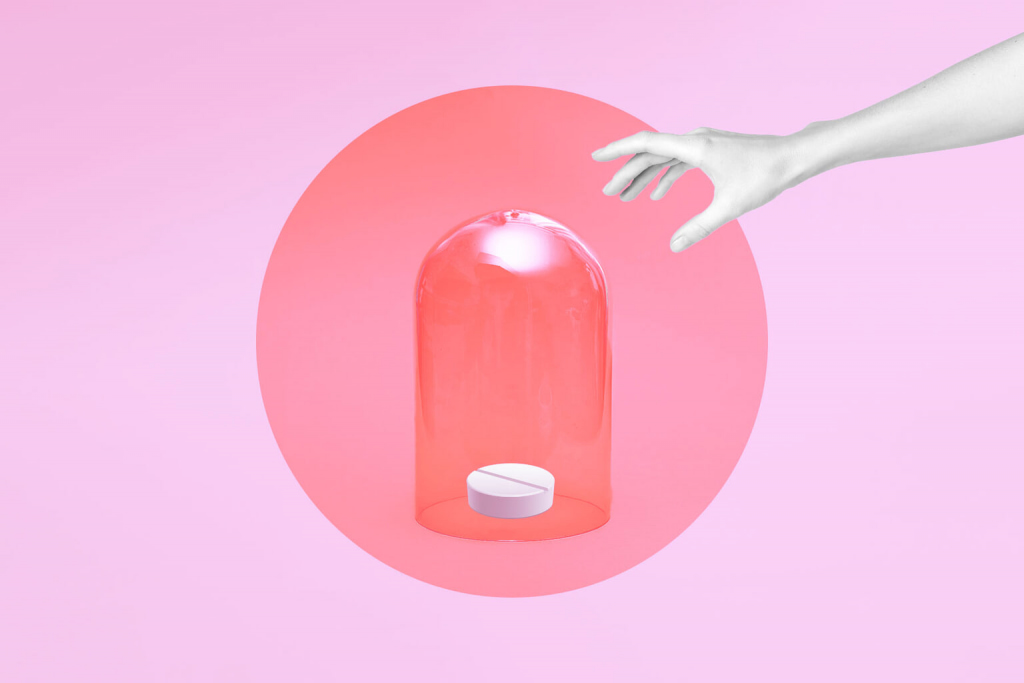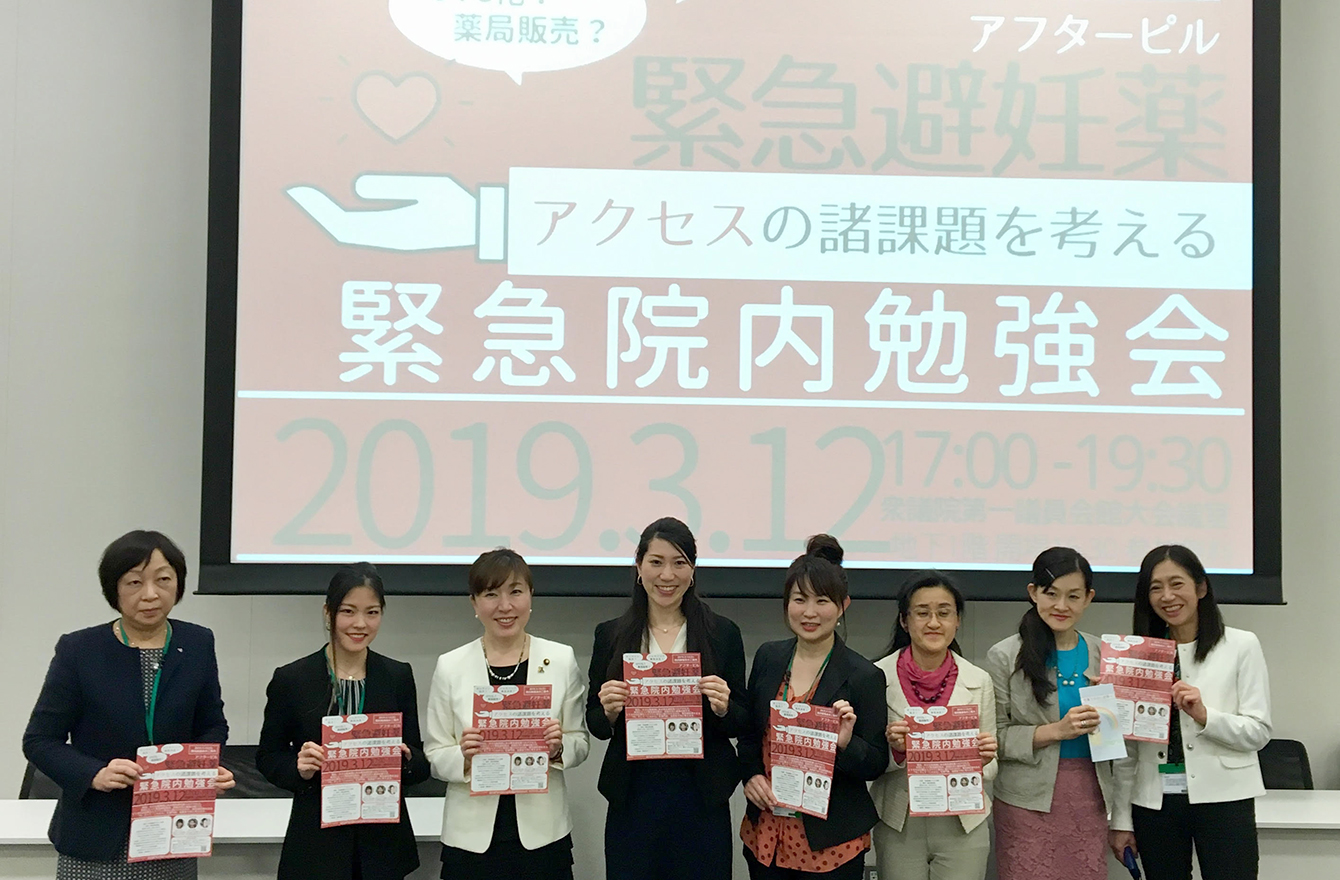Gender equality organizations are urging the Japanese government to grant over-the-counter access to emergency contraception. They have the public’s backing. A conservative government, however, continues to resist and consider their options.
“Accessible contraception is a human right,” says activist Kazuko Fukuda, during our interview. Fukuda is co-chair of the Citizen’s Project for Pharmacy Access to Emergency Contraception, a movement dedicated to repairing the gap in Japanese sexual health and education. “No one has the right to take [away] someone else’s right,” she affirms. Especially not a government.
Obstacles to accessing the morning-after pill in Japan
The Citizen’s Project states that at present, Japan is the only country in the G7 to currently impede immediate access to the emergency contraceptive pill by requiring a prescription from a doctor via consultation. Emergency contraceptives are available without prescription in over 90 countries around the world.
Obstacles for women in Japan include the price of the pill (¥10,000 – ¥20,000), limited clinic hours and locations. Then there’s the societal stigmas that have caused many to feel embarrassed or ashamed to the detriment of their health. “I gave up taking the morning-after pill because of psychological barriers to medical consultation and cost,” states one woman from the citizen’s initiative survey conducted by the Citizen’s Project.
According to recent domestic surveys by NPO’s and advocacy groups, as well as international surveys conducted by the UN, anxieties about unintended pregnancy and sexual violence against women (aptly named “Shadow Pandemic”) have increased substantially due to the Covid-19 pandemic. Now, more than ever, the Japanese public is calling for change.
厚労省のスイッチ検討会議に先立ち、同日の午前中に市民団体が会見を開くとのことです。
緊急避妊薬のスイッチに65団体から賛同を得たとして、賛同書を提出する予定とのことです。厚労省検討会開催前に市民団体が会見/65の団体からの賛同書提出 https://t.co/hsnbE8gDml
— 菅原幸子@ ドラビズon-line (@magazinesugawar) September 30, 2021
Working towards change
In May 2021, the Citizen’s Project collected and submitted over 100,000 public comments, along with a formal request signed by 25 NGOs and NPOs to cabinet members at the National Diet Building. The government responded to these results with a resounding: “We’ll consider making [emergency contraception] available [over-the-counter].” In June 2021, the Japanese government included this consideration in the publication of the nation’s “Basic Policy Reform Plan” for the following year. “That’s quite a big thing,” says Fukuda.
Although seen as a step forward for a paternalistic environment, advocacy groups fear pushback from influential conservative organizations. The Japan Association of Obstetricians and Gynecologists (JAOG) continuously and publicly opposes over-the-counter access, citing the increased risk of STD infection if men feel encouraged not to wear condoms and “misuse and abuse” as some of their main concerns.

The biggest barrier
“It’s sad to see gynecologists, who are supposed to be our biggest supporters, become one of the biggest walls preventing emergency contraception access,” says Fukuda.
She points to one of the largest paradoxes the gynecologist group has failed to recognize. “The men who would [feel encouraged not to] wear condoms already don’t wear them. That’s why there are so many women who actually need the morning-after pill.” Currently, less than 5% of women in Japan are using modern contraception.
In 2018, the World Health Organization (WHO) stated that emergency contraception is “essential, the right of all women and should be offered at an affordable price to everyone.” They renewed this sentiment again in 2020 amidst the uptick of sexual violence during the pandemic. Japan took 44 years to approve the birth control pill, citing fears about the “destruction of the nation’s morals.” It was finally approved in 1999. But only after international pressure and the swift six-month approval of the erectile dysfunction drug Viagra.
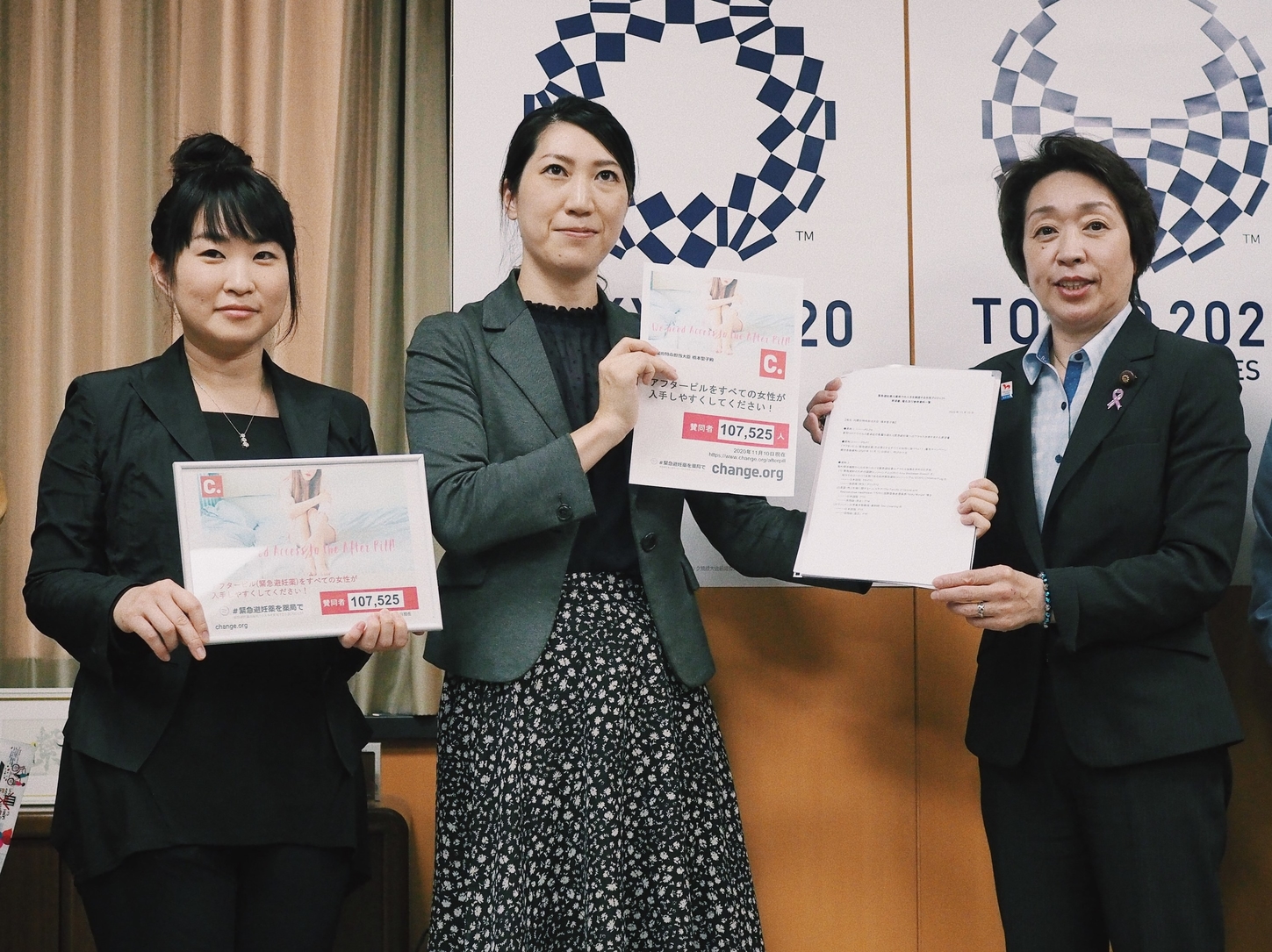
In 2020 the Citizen’s Project submitted the signatures to the then-Minister of State for Gender Equality Seiko Hashimoto
“Women bear a lot of judgmental attitudes,” says Fukuda. Be more careful next time is what they hear from professionals during consultation. “These are the comments that many women face,” adds Fukuda. She laments this culture of shaming and the paternal control that’s still dominant in the political spheres of Japan. “It comes from the mindset of not trusting women. Most stakeholders are still against [over-the-counter access],” she says. “But the most important thing is the driving force of the voice of the public.”
What will happen next?
A national meeting will be held on October 4 to deliberate which medicines to allow in Japan. The consideration of over-the-counter access is on the docket once again. In 2017, access was resolutely denied. “Things have changed a lot since then,” Fukuda says, citing the public’s incredible shift towards progress. “I’m so happy and empowered to see people using their voices now.”
Just a few years ago, people advised her to keep quiet. That’s just the way it is here, they said. Friends and colleagues warned that if Fukuda spoke up, people would judge and slander her. “But now I don’t see that anymore, so many people just naturally say emergency contraception should be accessible and why not? That’s the atmosphere I feel now. So that’s a really great thing. More and more people are aware of their rights.”
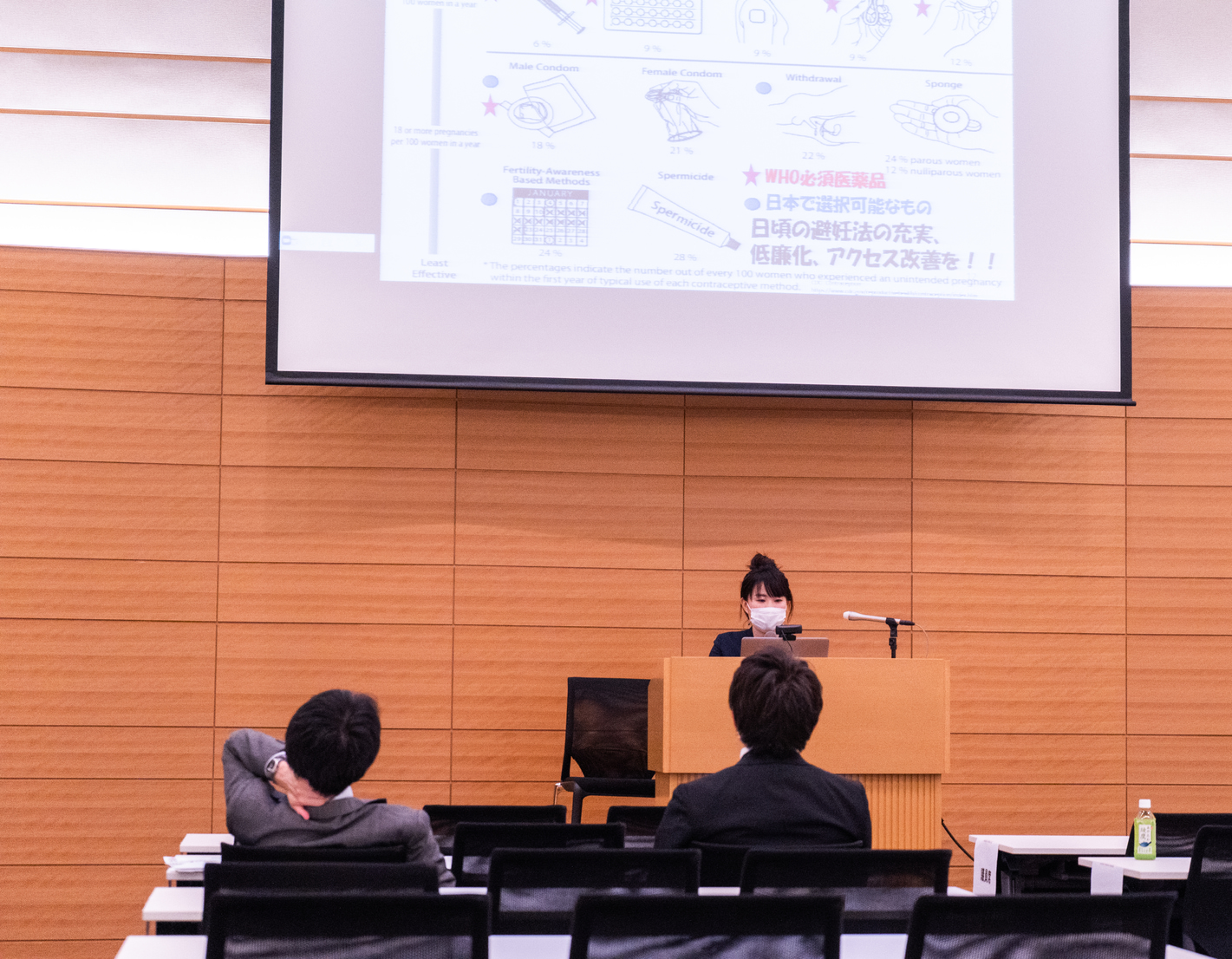
Gynecologist Enmi Sakiko is presenting to the Diet for the December 2020 meeting concerning the morning-after pill
It’s possible that this momentum could swing the deliberation in favor of the public. However, over-the-counter access isn’t the only hurdle to overcome. “[The government] is considering making it available, but only under the condition that women take the pill in front of a pharmacist,” says Fukuda gravely. They may even have to do it publicly if there are no consulting rooms available. “In the case of rape,” says Fukuda, “this is another form of violence. It breaks my heart.”
Government officials have implemented a training program to familiarize pharmacists with emergency contraception. Up to 9,000 have already taken the course.
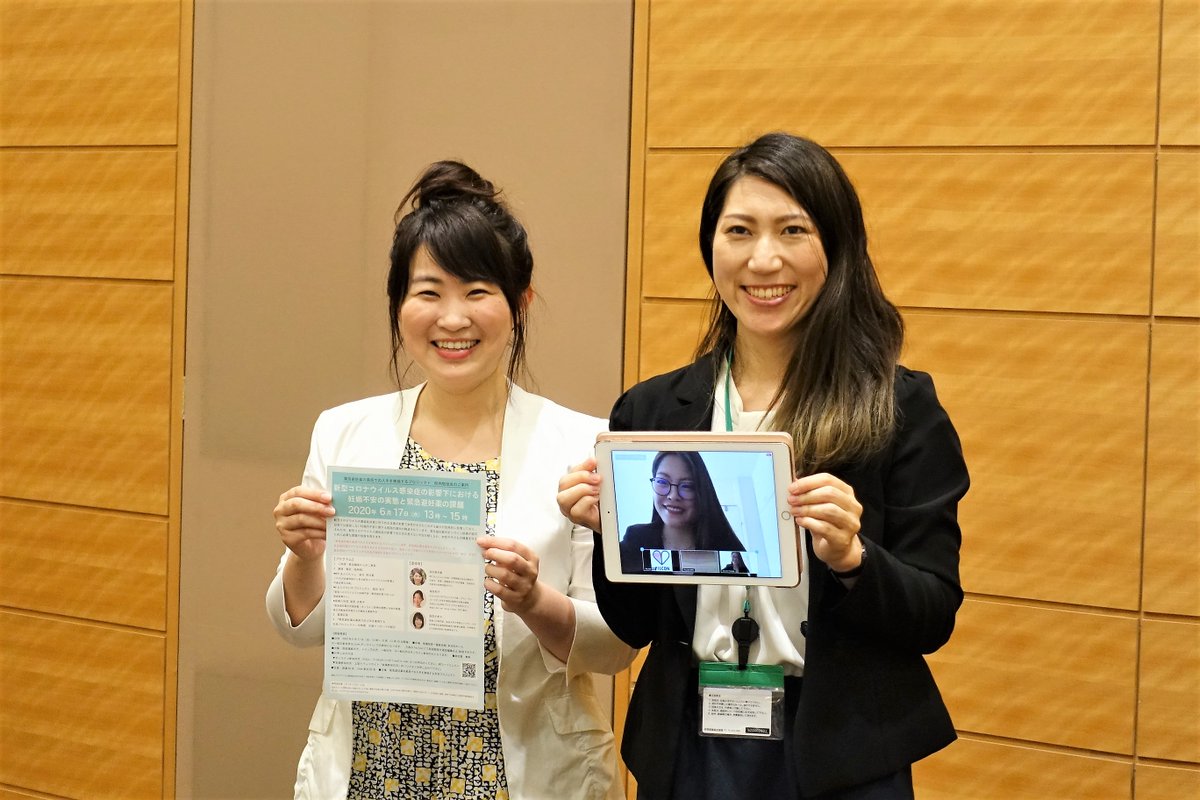
Three leading activists on this project: Asuka Someya – Kinkyuhinin project & NPO Pilcon and Gynecologist Enmi Sakiko – Kinkyuhinin project. Kazuko Fukuda joining them virtually.
Perseverance and further action
Fukuda relates how difficult it’s been to oppose the mentality of such a patriarchal government. The gynecology group that claims to be concerned about safety ignores facts, in favor of holding onto control over a woman’s decision about her body.
Directly responding to the JAOG’s concerns, the Citizen’s Project for Pharmacy Access initiated a crowdfunding campaign raising over ¥6 million. “We’re developing tool kits for schools and pharmacies,” says Fukuda. The kits are designed so that users and providers can easily educate themselves about sexual health. It’s moves like these that will eventually eliminate any excuses the gynecology group uses to maintain control over women’s lives.
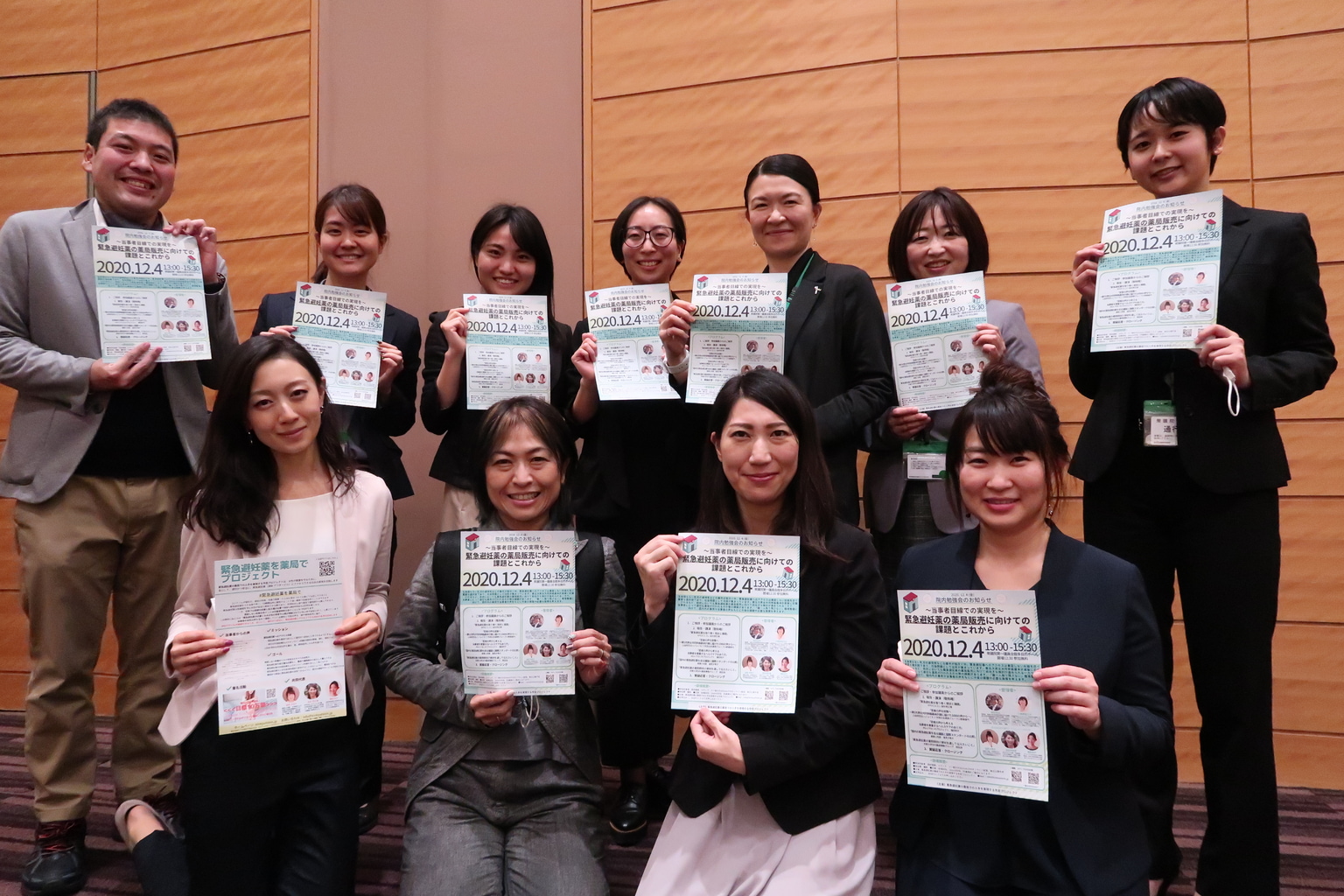
Fukuda says the time to ignite pressure on Japan is now with domestic and international media being a critical factor in creating change. She emphasizes that sparks of outrage and waves of support from the public have historically affected monumental decisions here. Just look at the several resignations that occurred before the 2020 Tokyo Olympics. And there was the decision to legalize the birth control pill in 1999.
In preparation for the upcoming meeting, Fukuda hopes to double the number of signatures on the online petition. The goal is to reach 200,000 names. Additionally, the citizen’s group is reaching out to youth-led organizations both at home and abroad to unite resources and inspire solidarity.
“The committee gets lots of pressure from those gynecology groups, but I think they also feel so much pressure from the public too. If they say ‘no’ this time, there’s going to be utter outrage,” says Fukuda
You can sign the petition here.
The public committee meeting is live on YouTube on October 4, from 3pm.
Read more about the uphill battle for contraception in Japan.

